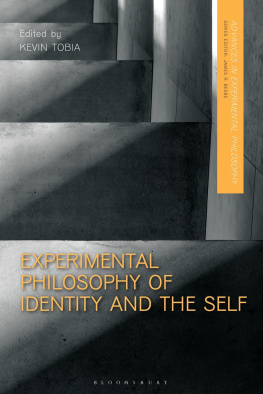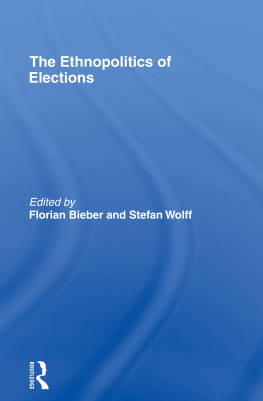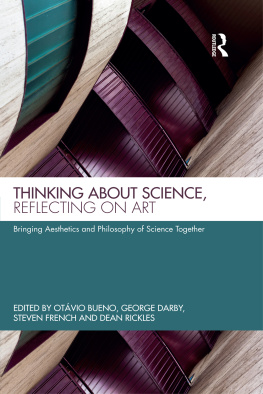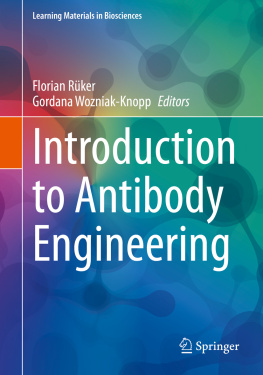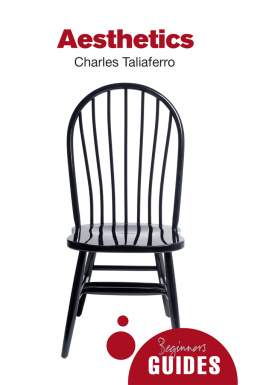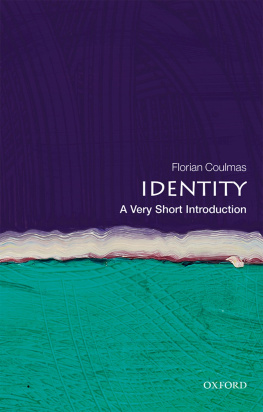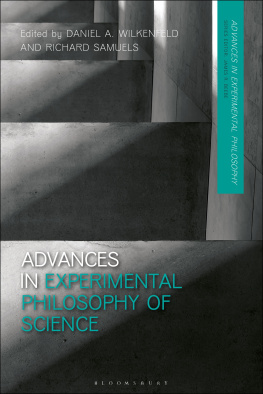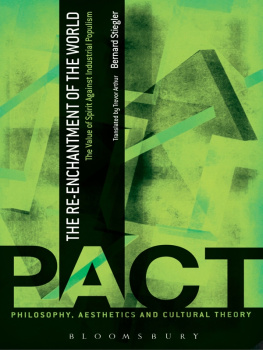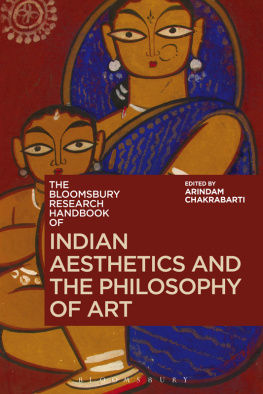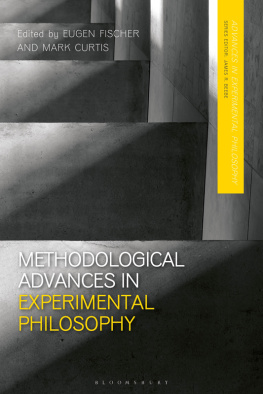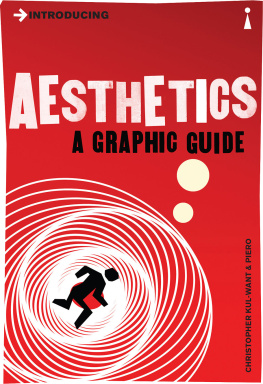Cova Florian - Advances in Experimental Philosophy of Aesthetics
Here you can read online Cova Florian - Advances in Experimental Philosophy of Aesthetics full text of the book (entire story) in english for free. Download pdf and epub, get meaning, cover and reviews about this ebook. year: 2019, genre: Politics. Description of the work, (preface) as well as reviews are available. Best literature library LitArk.com created for fans of good reading and offers a wide selection of genres:
Romance novel
Science fiction
Adventure
Detective
Science
History
Home and family
Prose
Art
Politics
Computer
Non-fiction
Religion
Business
Children
Humor
Choose a favorite category and find really read worthwhile books. Enjoy immersion in the world of imagination, feel the emotions of the characters or learn something new for yourself, make an fascinating discovery.

- Book:Advances in Experimental Philosophy of Aesthetics
- Author:
- Genre:
- Year:2019
- Rating:5 / 5
- Favourites:Add to favourites
- Your mark:
- 100
- 1
- 2
- 3
- 4
- 5
Advances in Experimental Philosophy of Aesthetics: summary, description and annotation
We offer to read an annotation, description, summary or preface (depends on what the author of the book "Advances in Experimental Philosophy of Aesthetics" wrote himself). If you haven't found the necessary information about the book — write in the comments, we will try to find it.
Advances in Experimental Philosophy of Aesthetics — read online for free the complete book (whole text) full work
Below is the text of the book, divided by pages. System saving the place of the last page read, allows you to conveniently read the book "Advances in Experimental Philosophy of Aesthetics" online for free, without having to search again every time where you left off. Put a bookmark, and you can go to the page where you finished reading at any time.
Font size:
Interval:
Bookmark:

Advances in Experimental Philosophy of Aesthetics
Advances in Experimental Philosophy
Series Editor:
James Beebe, Associate Professor of Philosophy, University at Buffalo, USA
Editorial Board:
Joshua Knobe, Yale University, USA
Edouard Machery, University of Pittsburgh, USA
Thomas Nadelhoffer, College of Charleston, UK
Eddy Nahmias, Neuroscience Institute at Georgia State University, USA
Jennifer Cole Wright, College of Charleston, USA
Joshua Alexander, Siena College, USA
Empirical and experimental philosophy is generating tremendous excitement, producing unexpected results that are challenging traditional philosophical methods. Advances in Experimental Philosophy responds to this trend, bringing together some of the most exciting voices in the field to understand the approach and measure its impact in contemporary philosophy. The result is a series that captures past and present developments and anticipates future research directions.
To provide in-depth examinations, each volume links experimental philosophy to a key philosophical area. They provide historical overviews alongside case studies, reviews of current problems and discussions of new directions. For upper-level undergraduates, postgraduates and professionals actively pursuing research in experimental philosophy these are essential resources.
Titles in the series include:
Advances in Experimental Epistemology, edited by James R. Beebe
Advances in Experimental Moral Psychology, edited by Hagop Sarkissian and Jennifer Cole Wright
Advances in Experimental Philosophy of Language, edited by Jussi Haukioja
Advances in Experimental Philosophy of Mind, edited by Justin Sytsma
Advances in Religion, Cognitive Science, and Experimental Philosophy,
edited by Helen De Cruz and Ryan Nichols
Advances in Experimental Philosophy of Aesthetics
Edited by
Florian Cova and Sbastien Rhault

Contents
James Andow is Lecturer in Philosophy at the University of East Anglia. He was previously at the University of Reading. His recent experimental work includes Third-Person Knowledge Ascriptions (coauthors: Jumbly Grindrod and Nat Hansen), which is forthcoming in Mind and Language, Lay Intuitions and Epistemic Normativity (coauthors: Pen Roberts and Kelly Schmidtke) in Synthese (2017), and Are Intuitions about Moral Relevance Susceptible to Framing Effects? in the Review of Philosophy and Psychology (2017). James also has an active research interest in philosophical methodology. His recent methodological work includes English Language and Philosophy (coauthor: Jonathan Tallant), forthcoming in Adolphs and Knights Routledge Handbook of English Language and Digital Humanities, Intuition-Talk: Virus or Virtue? in Philosophia (2017), and A Partial Defence of Descriptive Evidentialism about Intuitions in Metaphilosophy (2017). James was a founder of Experimental Philosophy Group UK and continues to be one of the main coordinators of the group. You can read more about his research at jamesandow.co.uk.
Margherita Arcangeli is Humboldt Research Fellow at the Humboldt-Universitt zu Berlin (Department of Philosophy). Her main areas of research are philosophy of mind (with an emphasis on the philosophy of imagination), philosophy of science (with an emphasis on the debate about thought experiments), aesthetics, epistemology, and philosophy of language.
Constant Bonard is working on his PhD between the Swiss Center for Affective Sciences, University of Geneva (Switzerland) and the Centre for Philosophical Psychology, University of Antwerpen (Belgium), supervised by Profs. Julien Deonna and Bence Nanay. He researches and teaches in the fields of philosophy of mind, philosophy of language, and aesthetics. His PhD is on the notion of affective meaning, how it is to be distinguished from descriptive meaning, and its role in human communication, verbal and nonverbal.
Florian Cova is postdoctoral researcher at the Swiss Center for Affective Sciences, University of Geneva. His work in experimental philosophy has touched a wide array of topics: intentional action, free will, aesthetics, or even political philosophy. Recently, he has been the main coordinator of the XPhi Replicability Project, a project aiming to assess the reproducibility of results in experimental philosophy. Turned out his faith in experimental philosophy might not have been misplaced.
Jrme Dokic is Professor of Cognitive Philosophy at the cole des Hautes tudes en Sciences Sociales (part of PSL Research University) and a member of Institut Jean-Nicod in Paris. He has written many articles on perception, memory, imagination, and metacognition. His books include La philosophie du son with Roberto Casati, Lesprit en mouvement. Essai sur la dynamique cognitive, Quest-ce que la perception? and Frank Ramsey: Truth and Success with Pascal Engel.
Taylor Enoch is a PhD candidate in philosophy at University College London. He is associate of the TCNJ Experimental Philosophy Laboratory and UCL Laboratory of Neurobiology. His research focuses on methodology in aesthetics and neuroaesthetics.
Steve Humbert-Droz is a PhD student in philosophy at the University of Fribourg. He is currently working on a taxonomy of imagination in light of the mode/content distinction. His other interests concern aesthetic values, organic unities, as well as philosophy of emotions.
Richard Kamber is Professor of Philosophy at the College of New Jersey. He earned BA from Johns Hopkins University and PhD in philosophy from Claremont University. He did postdoctoral work at Oxford University. He served for fifteen years as a university administrator before returning to full-time teaching. He is the author of three books on the history of philosophy, and articles on a variety of subjects, including aesthetics, existentialism, film, the Holocaust, and higher education. His most recent articles are: The Free Will of Ebenezer Scrooge and Does Philosophical Progress Matter? He is currently working on a book entitled Why Philosophers Cant Agree: Though Scientists Can. He is the outgoing president of the Association for Core Texts and Courses and vice chair of the Greater Philadelphia Philosophy Consortium.
Hanna Kim is associate professor in the Department of Philosophy at Washington and Jefferson College. Her primary research areas are the philosophy of language, aesthetics, and experimental philosophy. She has written articles on the context-dependence of metaphor, the metaphorical uninterpretability of aesthetic terms, imaginative resistance, and moral and punitive desert.
Markus Kneer is a postdoctoral research associate at the University of Zurich. His work focuses on mind, language, and moral psychology.
Shen-yi Liao is Assistant Professor of Philosophy at University of Puget Sound. He is Taiwanese.
Aaron Meskin is Professor of Philosophical Aesthetics at the University of Leeds. He works on a variety of issues in aesthetics, the philosophy of food, and philosophical psychology. He has authored numerous articles and chapters and coedited five books, including The Routledge Companion to Comics (2016), Aesthetics and the Science of Mind (2014), and The Art of Comics: A Philosophical Approach (2012).
George E. Newman is Associate Professor of Marketing and Management, Psychology and Cognitive Science at Yale University. His research focuses on questions related to the concepts of authenticity, identity, and the self. He has published more than fifty articles in leading scholarly journals, and his research has been featured in popular media outlets such as the
Font size:
Interval:
Bookmark:
Similar books «Advances in Experimental Philosophy of Aesthetics»
Look at similar books to Advances in Experimental Philosophy of Aesthetics. We have selected literature similar in name and meaning in the hope of providing readers with more options to find new, interesting, not yet read works.
Discussion, reviews of the book Advances in Experimental Philosophy of Aesthetics and just readers' own opinions. Leave your comments, write what you think about the work, its meaning or the main characters. Specify what exactly you liked and what you didn't like, and why you think so.

